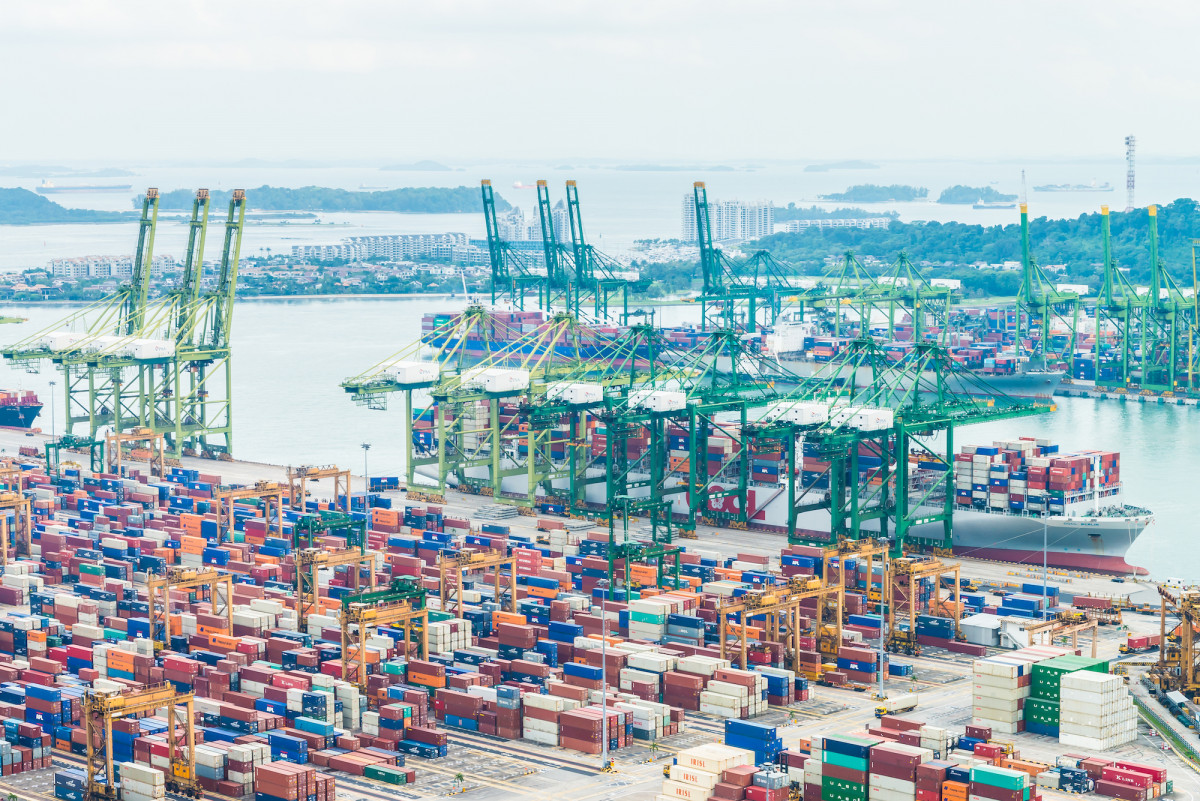Maritime Anti-Corruption Network in Argentina achieves milestone in corruption prevention for ship clearance

In 2015 the Maritime Anti-Corruption Network (MACN) contacted the International Centre for Collective Action (ICCA) at the Basel Institute on Governance because MACN needed assistance with finding a local civil society partner in Argentina. The shipping companies wanted to initiate an anti-corruption Collective Action through MACN and BSR (a non-profit sustainability advisory organization that serves as the MACN secretariat) and the Argentine government.
The ICCA quickly introduced MACN to Governance Latam, a Buenos Aires based law firm that specializes in compliance and anti-corruption. MACN launched their Collective Action in Argentina through Governance Latam and now, nearly three years later, the final key milestone in that collaboration was achieved last week. Here’s the background story.
MACN comprises about 80 members; mostly shipping companies or associated industries operating globally. Through BSR it was possible to gather anonymous information from the MACN members about facilitation payments that a ship’s captain might pay in various ports around the world. That data gathering exercise revealed that in the Port of Buenos Aires, bulk carriers that were carrying grain or other commodities were being solicited for bribes for the ships to pass inspection.
The MACN members and BSR together decided to establish a Collective Action in Argentina to tackle this issue constructively through a multi-stakeholder approach. Various government agencies joined the effort, consisting of the Chamber of Control Companies of the Republic of Argentina (CADECRA), the Center for Navigation, the Center for Cereal Exporters (CEC) and the Chamber of the Argentine Oil Industry (CIARA) together with the food safety agency (Senasa) and the Ministry of Agriculture. MACN worked through Governance Latam.
Senasa is a decentralized agency responsible for guaranteeing the quality of agricultural products in the country, including conducting the inspections of the ships’ holds and for certifying cleanliness and technical suitability to transport grain, food oils and other commodities. Senasa and the Ministry of Agriculture coordinate their efforts to strengthen the marketing of the country’s commodities throughout the world, in line with the WTO Agreement on Sanitary and Phytosanitary Measures.
Although the government authorities were working to ensure that their international obligations were being met, there were also subjective and discretionary elements to the inspection process that permitted inspectors to reject a ship for not being clean enough. The presence of insects, smells, contaminants or other noxious elements could provide the grounds to refuse a certification. But just how clean the hold had to be, or how many insects or what level of contamination would cause such a refusal was by and large up to an inspector to determine.
The participants to an inspection of the ship’s hold usually comprised the captain, the Senasa inspector, ship-owner’s local port agent and a private surveyor. The cost of these inspections - according to the Argentine regulation -was in the region of a rather derisory USD 100 per ship.
Inspections are time critical; if there’s a delay it’s going to cost someone money. Over the years, and particularly during the commodities boom, the inspectors became more conscious of their powers. The demands for payments shifted from being a few dollars to an average of several thousand dollars per ship.
Given the development of transnational anti-corruption laws and regulations, the stakes are now higher for companies and their employees to avoid corruption in any form. This has meant that shipping companies are no longer willing to acquiesce to demands for facilitation payments of any size - let alone on such a scale, given the legal and reputation risks involved.
MACN’s Collective Action tackled the issue in Argentina on multiple fronts. MACN members decided that their ship’s captains would no longer make facilitation payments to the inspectors. MACN’s local partner in Argentina (Governance Latam) began to engage with the government to change applicable national laws and regulations to make them clearer, to remove the scope for discretionary decision-making and to modernise the inspection processes. At the same time, MACN conducted its own research into what other countries were charging for the inspection of ships’ holds around the world.
MACN’s research revealed that in North America, Europe and Australia governments charge an average of USD 2000 USD per ship per inspection; Argentina was nominally demanding USD 100, but facilitation payments were on average several thousand USD. This gave new impetus to the Collective Action and the stakeholders have been working steadily to find solutions to prevent corruption in this sector in Argentina.
Fast forward to last week: The modernisation of the system of inspection of warehouses and tanks of ships exporting grains, their products and by-products, has been achieved through a significant change in the regulatory framework and its application. As the government puts it: ‘The entry into force of Resolution No. 693-E / 2017 of Senasa is the result of two years sustained collaborative work between the State and industry, which resulted in the adoption of a new control system in line with the evolution of the trade, which digitizes the management of the inspections of the warehouses and tanks of the bulk carriers and establishes a system of cross controls that promotes integrity and transparency.”
The ICCA congratulates all stakeholders and wishes the new system every success.
More information
- View the new regulation.
- See the stakeholders' joint statement.
The International Centre for Collective Action offers advisory services and provides facilitation expertise to companies and others that wish to engage in Collective Action to tackle corruption. For more information please see www.baselgovernance.org/collective-action and for queries on Collective Action please contact the author gemma.aiolfi@baselgovernance.org



